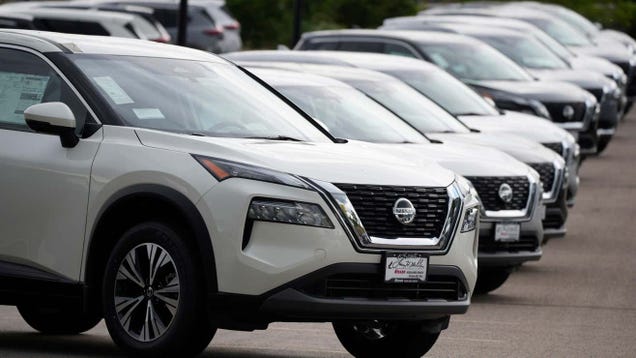Nissan’s Current Challenges: A Deep Dive into the Automaker’s Struggles
The automotive industry is undergoing significant transformations, and Nissan, once a formidable player, now finds itself grappling with a series of challenges that threaten its market position. Understanding these issues requires a closer examination of the underlying factors contributing to Nissan’s current predicament.
The Impact of Leadership Changes on Nissan’s Strategy
One of the most pressing concerns for Nissan has been its leadership instability. The departure of key executives, including former CEO Carlos Ghosn, has left a leadership vacuum that has hindered the company’s strategic direction. According to a report from the Automotive News, Nissan’s inability to establish a cohesive vision has led to inconsistent product offerings and a lack of innovation.
This leadership crisis has not only affected internal morale but has also shaken investor confidence. A study by McKinsey & Company highlights that companies with strong leadership tend to outperform their competitors, particularly in times of market disruption. Nissan’s ongoing leadership challenges raise questions about its ability to adapt to evolving consumer preferences and technological advancements.
Market Competition and Consumer Preferences
As the automotive landscape shifts towards electric vehicles (EVs) and sustainable practices, Nissan’s slow response to these trends has left it vulnerable to competitors. Tesla, Ford, and other automakers have aggressively pursued EV development, capturing significant market share and consumer interest. According to the International Energy Agency, global EV sales surged by 40% in 2021, indicating a clear shift in consumer preferences.
Nissan’s flagship electric model, the Leaf, while once a pioneer in the EV market, has struggled to maintain its relevance against newer, more advanced competitors. A recent survey conducted by J.D. Power revealed that consumers are increasingly seeking vehicles with advanced technology and longer ranges, areas where Nissan has lagged. The automaker’s failure to innovate and meet these demands may further alienate its customer base.
Financial Strain and Operational Inefficiencies
Nissan’s financial health has also come under scrutiny. The company reported a significant decline in profits, with a 20% drop in operating profit in the last fiscal year, as noted in their annual financial report. This downturn can be attributed to various factors, including rising raw material costs and supply chain disruptions exacerbated by the COVID-19 pandemic.
Moreover, operational inefficiencies have plagued Nissan’s manufacturing processes. A report from Deloitte emphasizes that automakers must streamline operations to remain competitive in a rapidly changing market. Nissan’s inability to optimize its production capabilities has resulted in increased costs and delayed product launches, further compounding its financial woes.
The Road Ahead: Can Nissan Overcome These Challenges?
While Nissan faces formidable obstacles, it is not without potential pathways to recovery. A renewed focus on electric vehicle development, coupled with strategic partnerships, could help the company regain its footing. For instance, Nissan’s collaboration with Renault and Mitsubishi in the Alliance has the potential to leverage shared resources and technology, enabling a more robust response to market demands.
Additionally, investing in research and development to enhance vehicle technology and sustainability practices could position Nissan as a leader in the EV space once again. According to a report by BloombergNEF, the global EV market is expected to reach $7 trillion by 2030, presenting a significant opportunity for automakers willing to innovate.
In conclusion, while Nissan’s current challenges are substantial, they are not insurmountable. By addressing leadership issues, adapting to market trends, and optimizing operations, Nissan has the potential to navigate its way back to prominence in the automotive industry. The road ahead may be difficult, but with strategic foresight and a commitment to change, Nissan can work towards reclaiming its status as a key player in the market.

